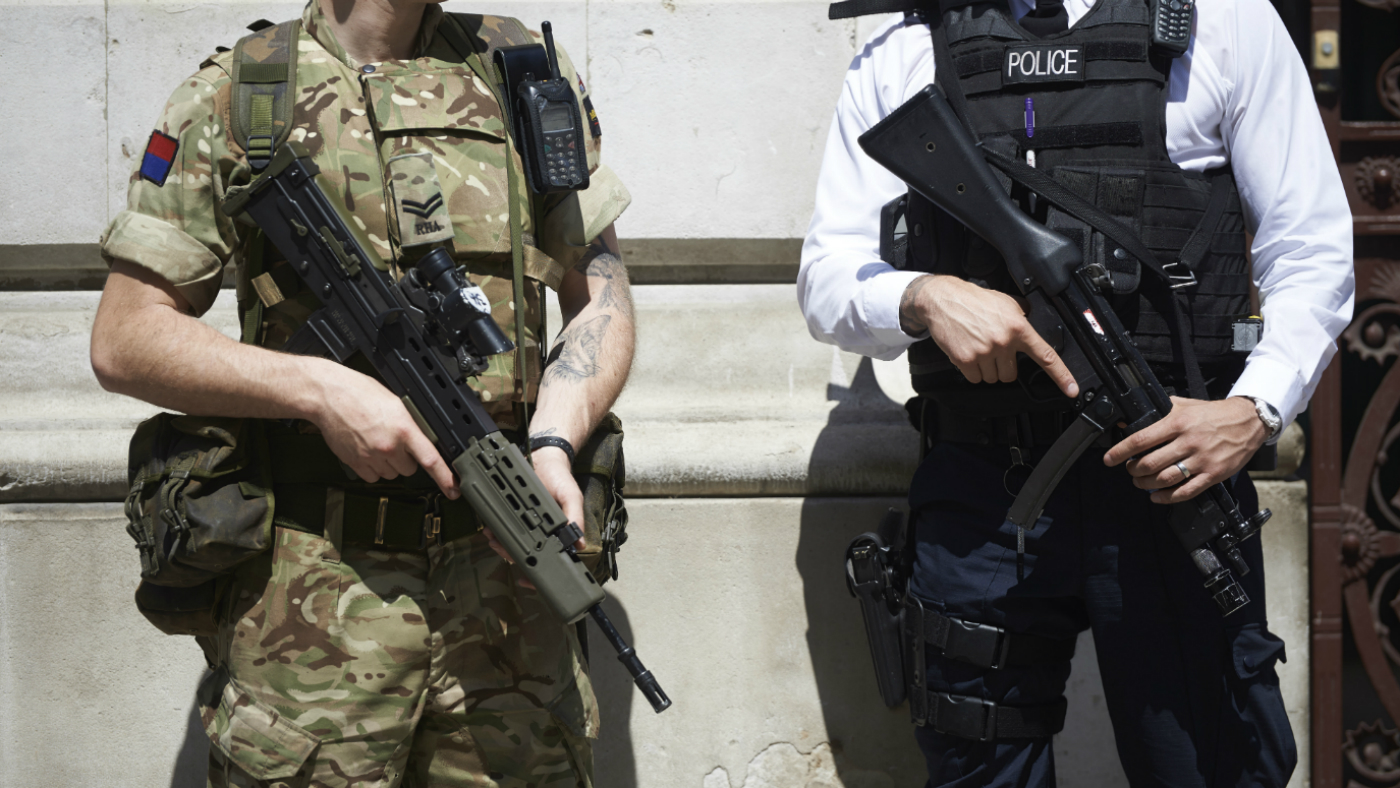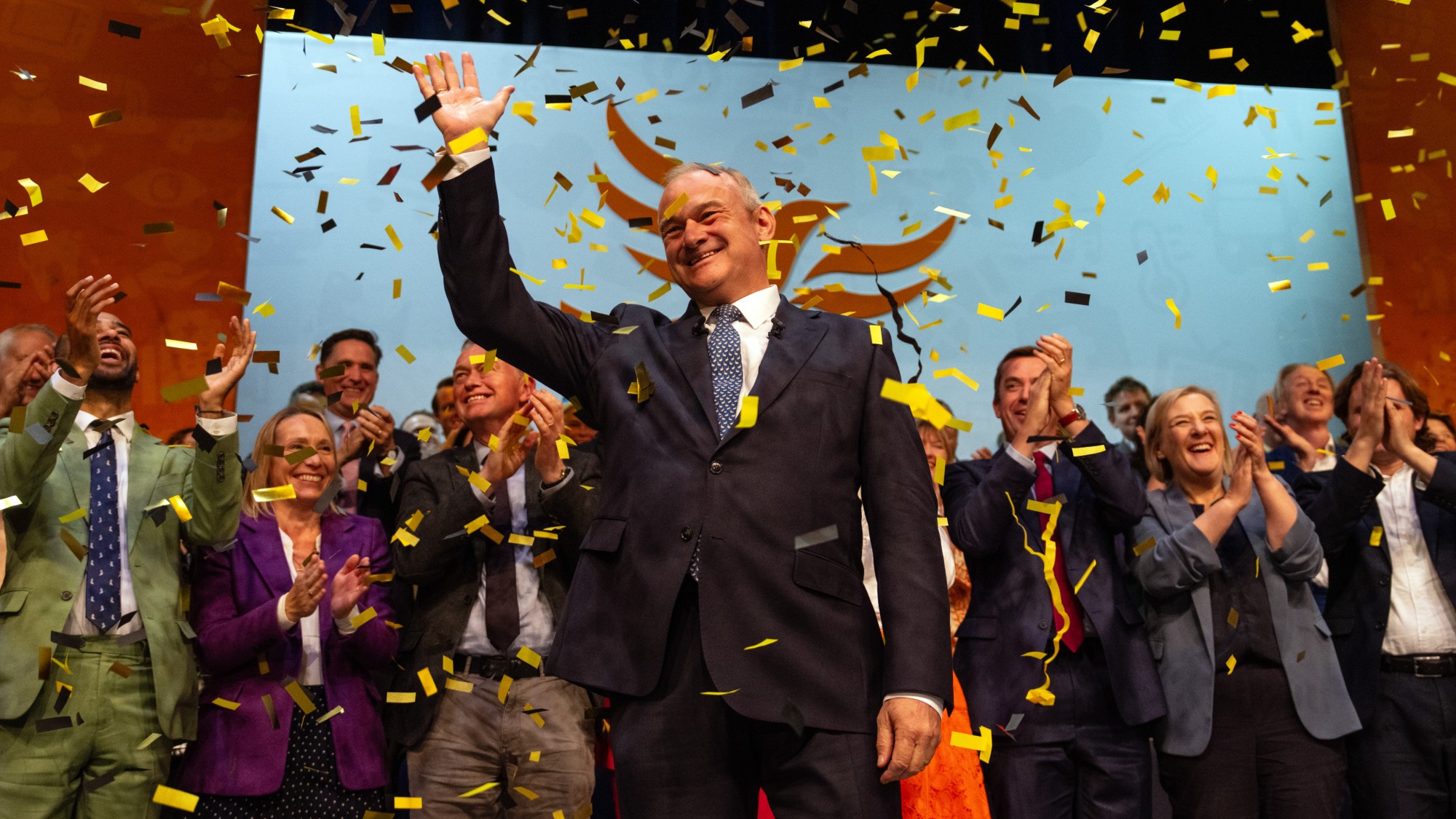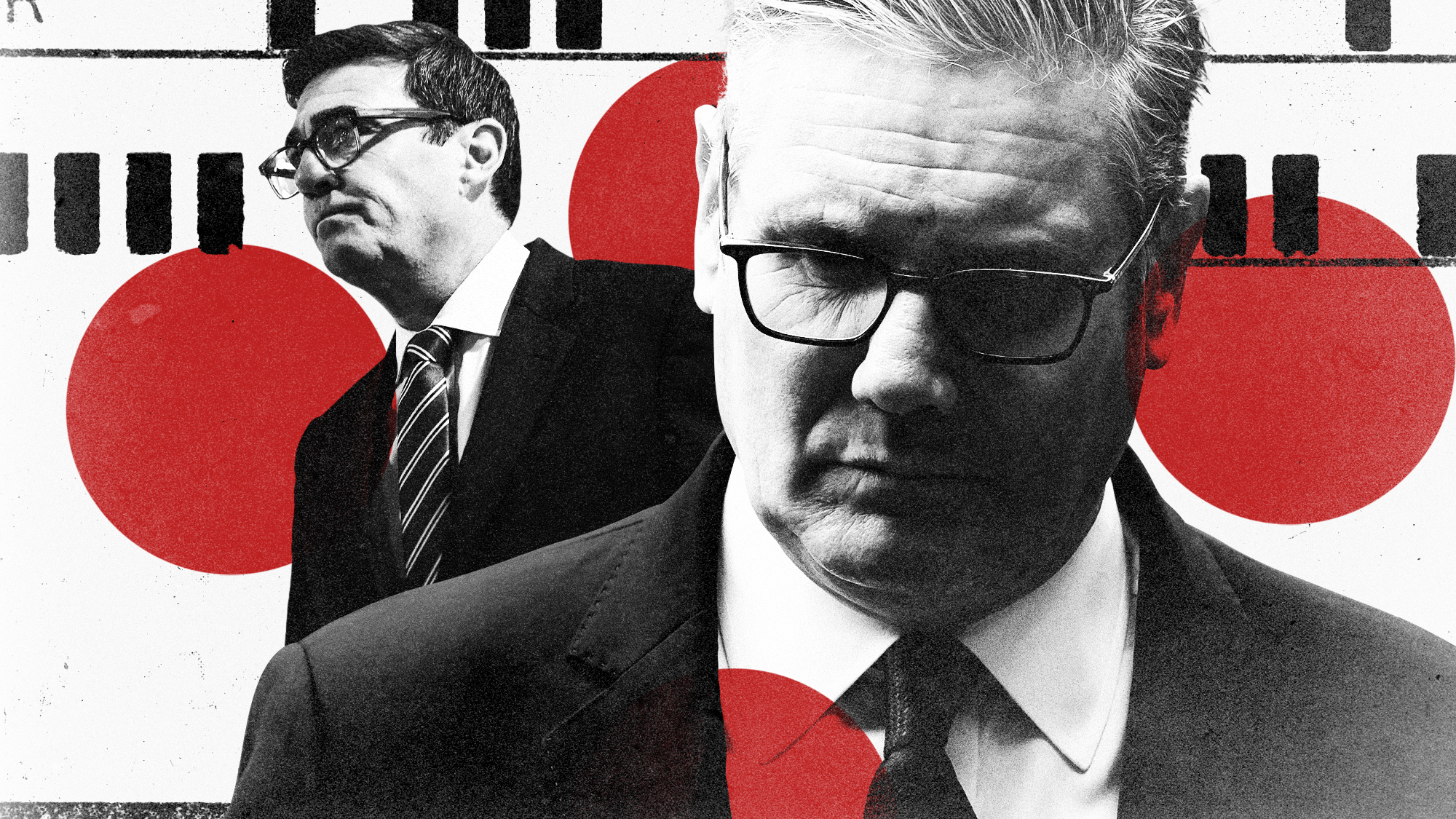The truth about police cuts
The Week looks at the facts and figures amid warnings from police chiefs

A free daily email with the biggest news stories of the day – and the best features from TheWeek.com
You are now subscribed
Your newsletter sign-up was successful
Government cuts to policing have left forces without the means to respond to terrorist attacks, according to the Police Federation.
Police chiefs have long warned of a shortage of resources and officers, but the Home Office insists they have "all the tools they need" to deal with the heightened terror threat. So what are the facts?
What do the police say?
The Week
Escape your echo chamber. Get the facts behind the news, plus analysis from multiple perspectives.

Sign up for The Week's Free Newsletters
From our morning news briefing to a weekly Good News Newsletter, get the best of The Week delivered directly to your inbox.
From our morning news briefing to a weekly Good News Newsletter, get the best of The Week delivered directly to your inbox.
Police welcomed Theresa May's decision to activate Operation Temperer to deploy hundreds of armed soldiers to assist officers at key locations after the terror threat level was raised to critical after the Manchester terror attack.
Steve White, Chair of the Police Federation of England and Wales, said that the involvement of military personnel would help free up armed police officers and reassure the public.
"But, as welcome as this is, we cannot avoid the reasons it is needed at all," he said. "There is no ignoring the fact that we, the police, simply do not have the resources to manage an event like this on our own."
What do politicians say?
A free daily email with the biggest news stories of the day – and the best features from TheWeek.com
Manchester mayor Andy Burnham, who has been a vocal critic of Conservative cuts to policing, called for a broader discussion about police resourcing going forward, reports The Sun.
But Home Secretary Amber Rudd insisted that UK police "have all the tools they need" to carry out their duties. "She added that while the armed forces would 'backfill' for the police, this was an established process and did not indicate a shortage of officers," the Financial Times reports.
Rudd did, however, promise to take "a look to see if there are any lessons to be learned".
Are there fewer bobbies on the beat?
According to Home Office statistics cited in the NewStatesman in 2015, 17,000 officers were cut between 2010 and 2015 as part of the coalition government's large-scale budget cuts.
Despite a promise by then Home Secretary May that "cuts can be taken without affecting frontline policing," 12,000 of those who lost their jobs were described as frontline police officers.
These were undeniably very significant cuts, but they need to be placed in longer-term perspective, says Tim Newburn, Professor of Criminology and Social Policy at the London School of Economics.
"The very significant increases in both police budgets and numbers that took place under the previous Labour administrations mean that both officer and overall workforce numbers are now back roughly at the levels they were between 2001 and 2003," he wrote for the BBC in 2015.
However, since then, a further 3,000 police officers have lost their jobs, bringing the total to roughly 20,000.
The Sun reports that 1,337 trained firearms officers have been slashed in England and Wales between 2010 and last year. After the Manchester attack, May deployed 984 soldiers onto Britain's streets.
Who's right?
Despite assurances from the Home Office, it is clear that budget cuts have affected frontline policing. By sending in the military, May's government is perhaps admitting as much.
-
 Moltbook: The AI-only social network
Moltbook: The AI-only social networkFeature Bots interact on Moltbook like humans use Reddit
-
 Judge orders Washington slavery exhibit restored
Judge orders Washington slavery exhibit restoredSpeed Read The Trump administration took down displays about slavery at the President’s House Site in Philadelphia
-
 Kurt Olsen: Trump’s ‘Stop the Steal’ lawyer playing a major White House role
Kurt Olsen: Trump’s ‘Stop the Steal’ lawyer playing a major White House roleIn the Spotlight Olsen reportedly has access to significant U.S. intelligence
-
 How corrupt is the UK?
How corrupt is the UK?The Explainer Decline in standards ‘risks becoming a defining feature of our political culture’ as Britain falls to lowest ever score on global index
-
 How long can Keir Starmer last as Labour leader?
How long can Keir Starmer last as Labour leader?Today's Big Question Pathway to a coup ‘still unclear’ even as potential challengers begin manoeuvring into position
-
 The high street: Britain’s next political battleground?
The high street: Britain’s next political battleground?In the Spotlight Mass closure of shops and influx of organised crime are fuelling voter anger, and offer an opening for Reform UK
-
 Is a Reform-Tory pact becoming more likely?
Is a Reform-Tory pact becoming more likely?Today’s Big Question Nigel Farage’s party is ahead in the polls but still falls well short of a Commons majority, while Conservatives are still losing MPs to Reform
-
 Taking the low road: why the SNP is still standing strong
Taking the low road: why the SNP is still standing strongTalking Point Party is on track for a fifth consecutive victory in May’s Holyrood election, despite controversies and plummeting support
-
 The Liberal Democrats: on the march?
The Liberal Democrats: on the march?Talking Point After winning their highest number of seats in 2024, can the Lib Dems marry ‘stunts’ with a ‘more focused electoral strategy’?
-
 Is Andy Burnham making a bid to replace Keir Starmer?
Is Andy Burnham making a bid to replace Keir Starmer?Today's Big Question Mayor of Manchester on manoeuvres but faces a number of obstacles before he can even run
-
 What difference will the 'historic' UK-Germany treaty make?
What difference will the 'historic' UK-Germany treaty make?Today's Big Question Europe's two biggest economies sign first treaty since WWII, underscoring 'triangle alliance' with France amid growing Russian threat and US distance